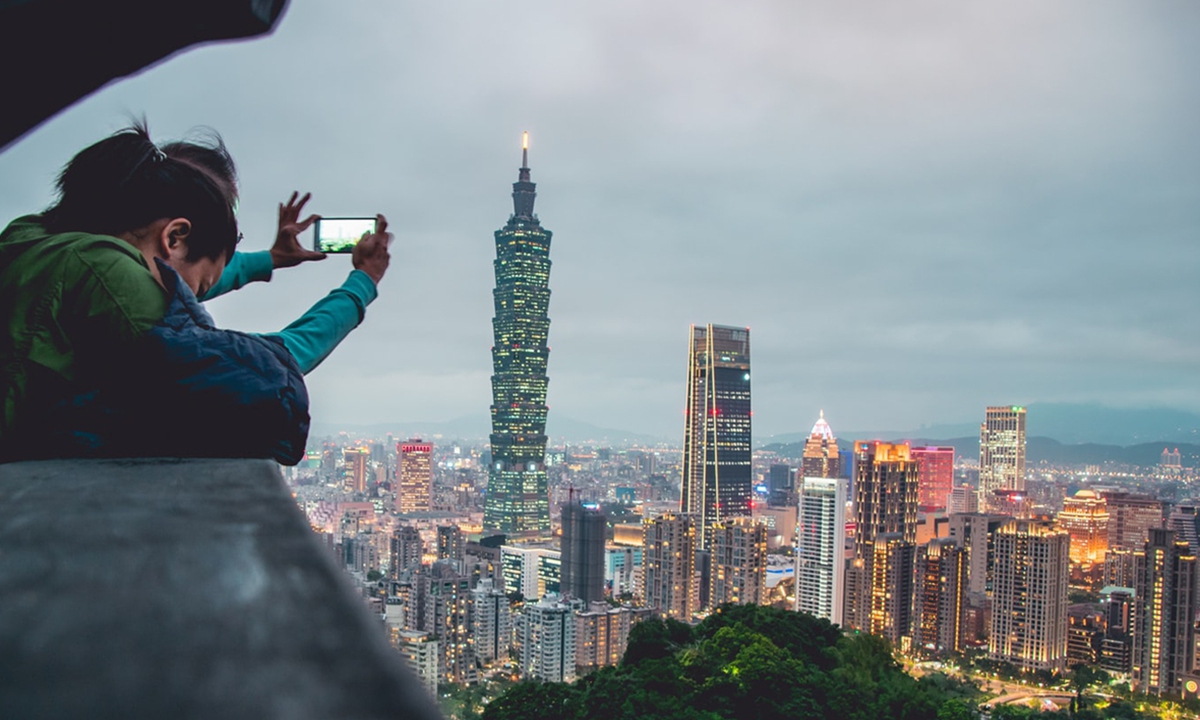Recovery of Taiwan from Japanese colonial rule commemorated across Straits
By Wang Qi Source: Global Times Published: 2020/10/22 22:29:02
DPP glorifies colonization, wants island to be quasi-colony of US: experts

Taiwan Photo: Unsplash
People from both sides of the Taiwan Straits are commemorating the 75th anniversary of 1945 recovery of Taiwan from Japan colonial rule. Many blast Taiwan secessionist Democratic Progressive Party's (DPP) colonial mentality as the DPP, by glorifying colonization and pandering to Washington, wants the island to become a quasi-colony of the US.
The Kuomintang (KMT) on Wednesday announced celebration details, including concerts, seminars, and historical exhibitions. Previous KMT leaders will also attend, Taiwan media reported.
On Thursday in Beijing, speaking at a seminar to commemorate the 75th anniversary of the recovery of Taiwan from Japanese colonial rule, China's top political advisor Wang Yang said that the victory of the Chinese People's War of Resistance against Japanese Aggression and the recovery of Taiwan in 1945 thoroughly washed away the century-old humiliation of the Chinese nation, and vigorously safeguarded China's sovereignty and territorial integrity.
Although the two sides have not yet been fully reunited, the fact that the mainland and Taiwan belong to the same China has never changed, said Wang.
Politicians from Taiwan, including the former leader of New Party Yok Mu-ming, also attended the meeting.
Taiwan was ceded to Japan in 1895 under the Treaty of Shimonoseki, after the Qing government was defeated by Japan in the first Sino-Japanese War. On October 25, 1945, China recovered the island that had been occupied by Japan for half a century.
A civil war broke out in China shortly after the recovery of the island of Taiwan. The KMT was defeated by the Communist Party of China and retreated to the island of Taiwan in 1949.
Analysts believe 75 years on, Taiwan is still not really free of colonization as the secessionist Democratic Progressive Party (DPP) continues to glorify Japanese colonization of Taiwan and more than ever, panders to the US.
A KMT politician said that despite financial difficulties, the KMT is still trying to raise money for the commemoration, while the DPP leader Tsai Ing-wen refuses to participate, Taiwan media reported.
The DPP has long been reluctant to acknowledge the recovery of Taiwan from Japanese colonial rule and Taiwan's return to China in 1945, which runs counter to the DPP's political goals of "removal of Chinese elements" so as to achieve "Taiwan independence."
Analysts said DPP has been advocating "unsettled sovereignty of Taiwan" and denying the legal effect of the Cairo Declaration and the Potsdam Proclamation, as the DPP's fundamental purpose is to deny China sovereignty over Taiwan.
Wang Jianmin, a Taiwan affairs expert at the Chinese Academy of Social Sciences, told the Global Times that the KMT's high-profile commemoration continues their basic stand on major issues of the Chinese nation, and affirmed the one-China consensus, which is highly commendable.
As for the Tsai Ing-wen authority, Wang said that Taiwan secessionists distort history and glorify colonial rule on the island.
The DPP authority has revised Taiwan's textbooks in recent years. Japanese colonial rule was portrayed as a "glorious vision of civilization," with no mention of war crimes, such as the recruitment of "enslaved women" and soldiers on the island, Xinhua reported.
The "independence" claimed by the DPP authority is meant to make trouble for the mainland under the command of the US. They would rather be colonized again and become a quasi-colony of the US, Wang said.
Shaw Chong-hai, former head of the school of social sciences at Chinese Culture University in Taiwan, told the Global Times that the DPP authority does not accept the concept of recovery but the KMT's role in the reunification could be limited.
The KMT did not challenge the one-China principle, but their China is the one before 1949, and they are also facing pressure from the election, said Shaw.
"Without the one-China principle, there would be no room for the KMT to exist, as they must clearly see the historical trend of the inevitable reunification and its own role in the process," said Wang.
Posted in: SOCIETY